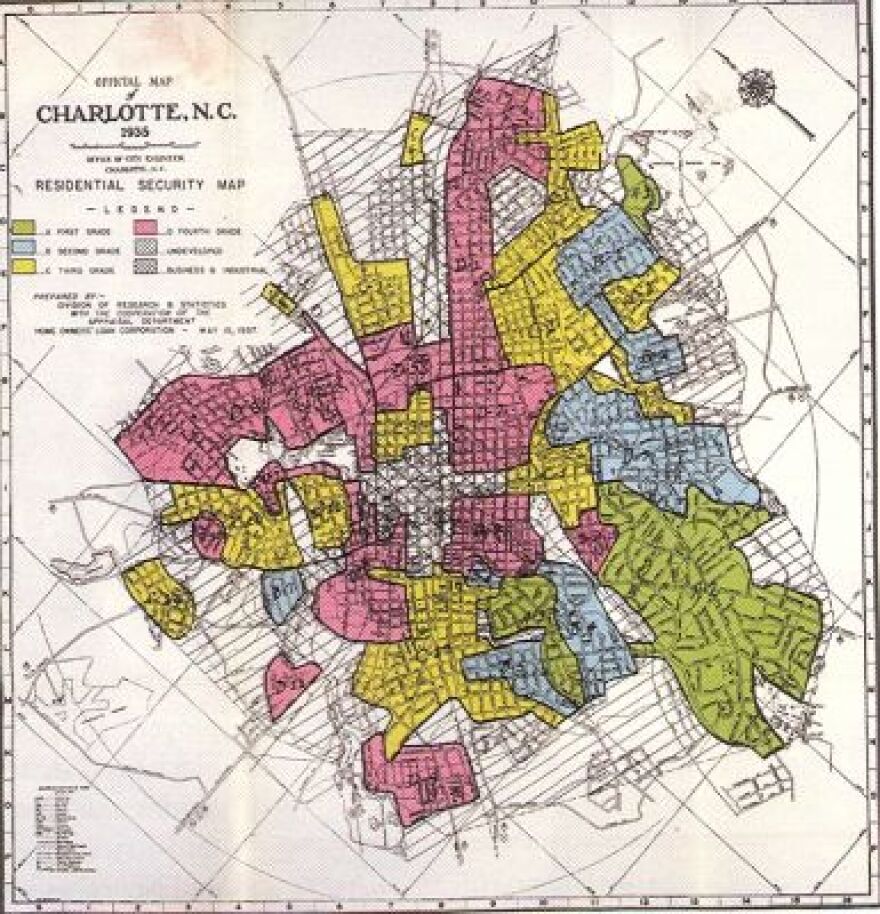Monday, May 13, 2019
A peek at a controversial and bold new idea to undo the legacy of housing segregation by eliminating single-family zoning. Planning Director Taiwo Jaiyeoba and others tell us more.
Note: This show was previously scheduled for Thursday and will now air on Monday, May 13.
Charlotte planners are in the midst of rewriting the city’s outdated zoning codes and updating the comprehensive plan. Like many of the city’s leaders, they are doing so with an eye towards racial equity and upward mobility.
Charlotte planning director Taiwo Jaiyeoba is considering a bold idea that would address Charlotte’s history of racial segregation – eliminating single-family zoning. It’s a controversial concept that would allow duplexes and triplexes in neighborhoods that were traditionally designed for single-family homes.
Historians point to local, state, and federal policies like restrictive deed covenants, federal redlining, and zoning policies that helped perpetuate racial segregation for much of the last century. The legacy of those policies is apparent in some of the largely-segregated communities we still have today in Charlotte.

Jaiyeoba told Charlotte Talks: "planning has a role in past history, now we have a role in making sure we create a future that is more equitable for all of us." He also says this idea isn't exactly new: "just look at established neighborhoods like Plaza Midwood, Dilworth, and Elizabeth – you see single family homes along with duplexes. There was a time when we did that. Then we had the advent of zoning practices that tended to favor one group over another."

Other cities have taken the approach of baking issues of equity into city planning. Minneapolis eliminated single-family zoning last year as part of their 2040 comprehensive plan in the hopes of undoing a history of racist housing practices there.
Heather Worthington, long-range planning director for Minneapolis told Charlotte Talks: "Exclusionary zoning is not a modern construct. It was an intentional effort to block people based on race from certain parts of cities. Almost every large city has buried in archives a red-lining map. You can correlate that to modern zoning. For most people it’s eye-opening and compelling. We need to change our regulatory approach to land-use and create better access to those areas."
We hear about how that community reacted, and talk with Charlotte’s planning director and others about what that concept would look like here and about the legacy of racial segregation in city planning.
City planners are looking at expanding single-family zoning in Charlotte neighborhoods to include other types of residential development like duplexes and triplexes. Do you support this idea in Charlotte? @CLTgov
— Charlotte Talks (@CharlotteTalks) May 8, 2019
Guests
Taiwo Jaiyeoba, planning director for the City of Charlotte
Tom Hanchett, community historian
Brian Leary, president, commercial and mixed use, Crescent Communities
Heather Worthington, director of long-range planning, City of Minneapolis, Minnesota




